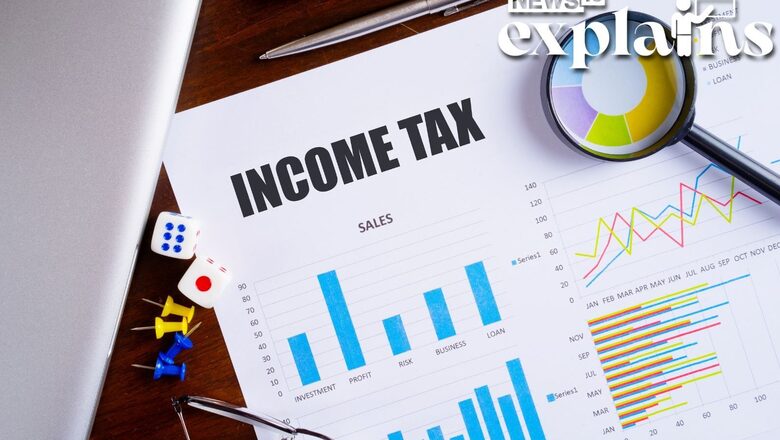
views
Union Budget 2023: A government imposes income tax as a direct tax on the earnings of its people. The central government is required to collect this tax under the Income Tax Act of 1961. Every year, the government can alter the tax rates and income brackets in the Union Budget. LIVE Updates
Explained:
Income isn’t just money received in the form of a paycheck. It also includes income from rental property, corporate earnings, professional gains (such as bonuses), revenue from capital gains, and “income from other sources.” The government frequently allows for various deductions from an individual’s income before determining the amount of tax to be charged, a report by Business Standard explains.
What are Income Tax Returns?
The basis for computing a person’s income tax is their Income Tax Return (ITR) form. It is a document that details a person’s status, all of their income sources, deductions, and, if applicable, the tax due or refund.
Income Tax Brackets
Finance Minister Nirmala Sitharaman on Wednesday tweaked the slabs to provide some relief to the middle class by announcing that no tax would be levied on annual income of up to Rs 7 lakh under the new tax regime.
She also allowed a Rs 50,000 standard deduction to taxpayers under the new regime, where assessees cannot claim deductions or exemptions on their investments.
She also tweaked the concessional tax regime, which was originally introduced in 2020-21, by hiking the tax exemption limit by Rs 50,000 to Rs 3 lakh and reducing the number of slabs to five.
In the Budget for 2023-24, Sitharaman said currently individuals with total income of up to Rs 5 lakh do not pay any tax due to rebate under both the old and new regimes.
“It is proposed to increase the rebate for the resident individual under the new regime so that they do not pay tax if their total income is up to Rs 7 lakh,” Sitharaman said.
She further said under the new personal income tax regime, the number of slabs would be reduced to five.
“I propose to change the tax structure in this regime by reducing the number of slabs to five and increasing the tax exemption limit to Rs 3 lakh,” Sitharaman said.
Under the revamped concessional tax regime, no tax would be levied for income up to Rs 3 lakh. Income between Rs 3-6 lakh would be taxed at 5 per cent; Rs 6-9 lakh at 10 per cent, Rs 9-12 lakh at 15 per cent, Rs 12-15 lakh at 20 per cent and income of Rs 15 lakh and above will be taxed at 30 per cent.
“I propose to extend the benefit of standard deduction to the new tax regime. Each salaried person with an income of Rs 15.5 lakh or more will thus stand to benefit by Rs 52,500,” Sitharaman said The government in Budget 2020-21 brought in an optional income tax regime, under which individuals and Hindu Undivided Families (HUFs) were to be taxed at lower rates if they did not avail specified exemptions and deductions, like house rent allowance (HRA), interest on home loan, investments made under Section 80C, 80D and 80CCD. Under this, total income up to Rs 2.5 lakh was tax exempt.
With PTI inputs
Read all the Latest Business News and Budget Live Updates here




















Comments
0 comment